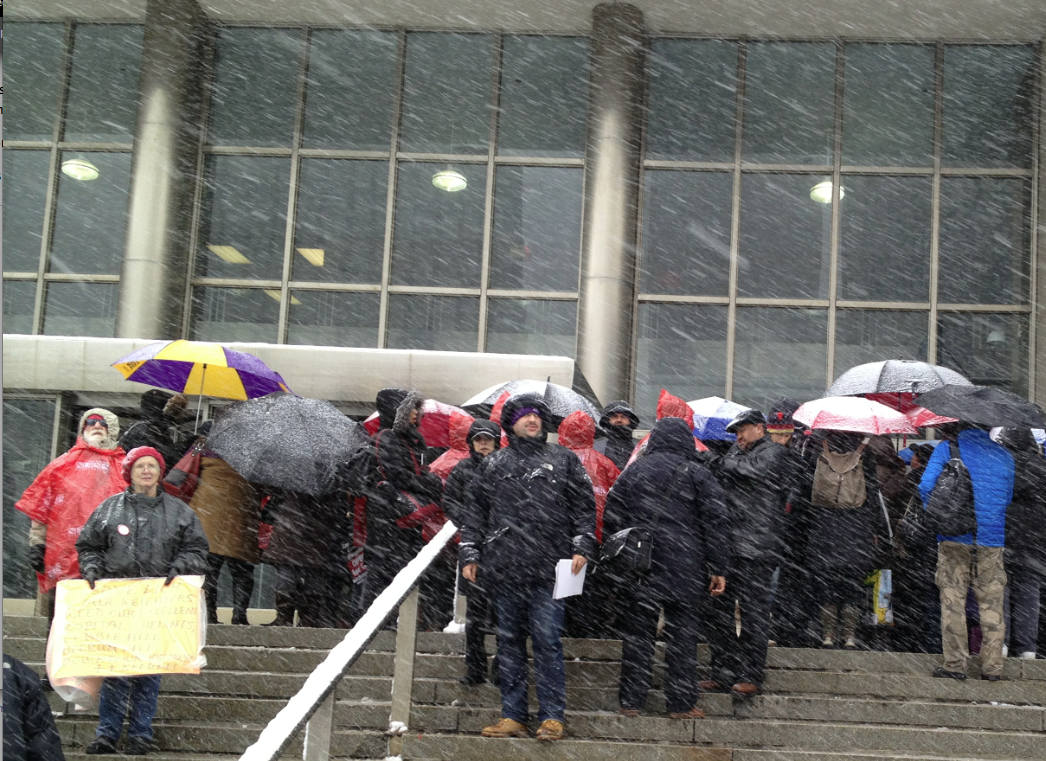ANOTHER STAY OF EXECUTION: Judge delays decision on quick kill for LICH

In a crowded courtroom of over 60 spectators and attorneys, oral arguments were heard Friday on the state’s move to close Long Island College Hospital. The judge who had temporarily stayed the State University of New York from acting on its decision to kill LICH deferred a decision and continued the stay.
While both sides were “commended” by Brooklyn Supreme Court Justice Johnny Lee Baynes for submitting “excellent memoranda” on the issues, Baynes made clear that the previously issued stay would remain in effect until he renders a “comprehensive decision.”
The groups suing to keep LICH alive — the NYS Nurses Association, Local 1119 SEIU Healthcare Workers East, and Concerned Physicians of LICH — alleged that SUNY’s trustees held a “show public hearing” after an executive session at which it had already decided the fate of the Cobble Hill hospital. The petitioners further claim that after the public hearing, the board held a “perfunctory public meeting” where it formally voted to close the hospital. Petitioner attorneys assert that that this public meeting violated the Open Meetings Law because the trustees only allowed about 60 members of the public.
